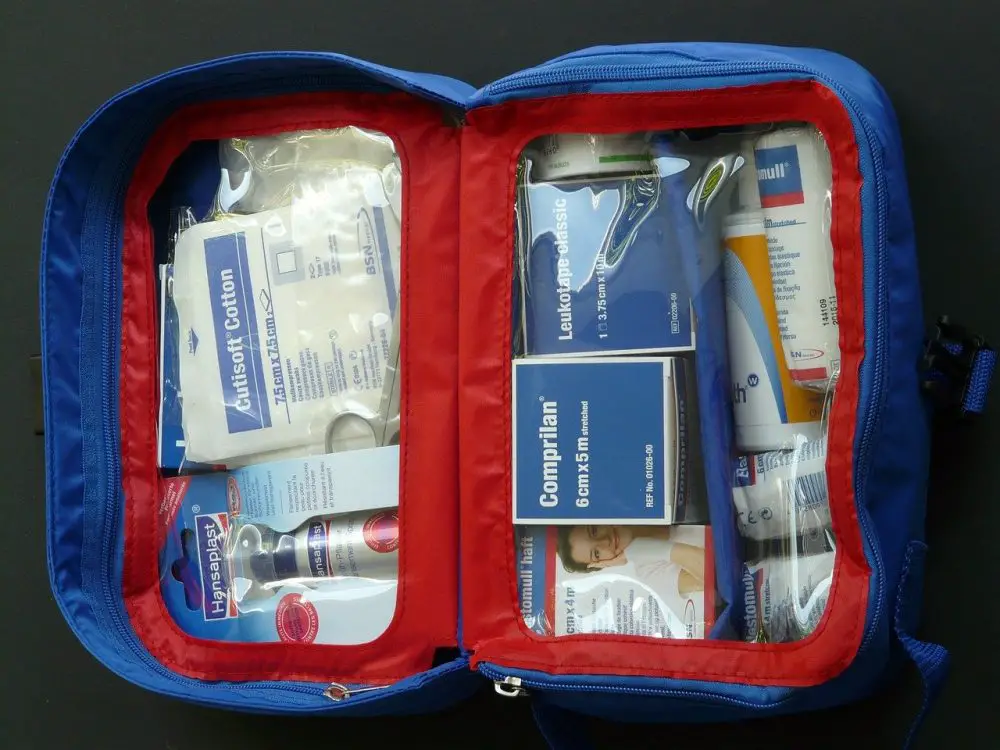It is necessary to have the appropriate supplies on hand to stay safe during disasters. Natural disasters can happen at any time — for example, earthquakes, tornadoes, wildfires, floods, hurricanes, thunderstorms or winter storms. You may also encounter smaller-scale incidents, like car accidents or power outages. It’s best to prepare for all of these by having an emergency bag ready. It can help someone survive a crisis or keep them safe during a frightful encounter. Therefore, the perfect bug-out bag should equip someone at school, at work or on the go.
Why an Emergency Bag Is Important
There are many reasons why emergency bags are crucial to have at the ready.
With everything already packed in a bug-out bag, you’ll have extra time to escape a situation and reach safety. Those who are unprepared have to scramble to grab the essentials, potentially forgetting critical supplies during the chaos. Not to mention, the longer it takes for someone to grab the essentials, the less time they have to evacuate their homes. For example, cities may tell citizens to evacuate the area without enough prior notice, causing them to panic if they can’t gather supplies in time.
Keeping an emergency bag on hand will ensure a sense of security and preparedness. It’ll help ease your worries and lessen stress in difficult times. Plus, it never hurts to adapt to any situation, as an emergency bag allows people to carry multiple items that would otherwise clutter a purse or pocket.
Moreover, most college students who live alone, without their parents’ guidance, will have to fend for themselves if disasters arise. Thus, they need to prepare in advance for emergencies since their families won’t be there to save or help them.
Everyone should expect the unexpected and prepare in advance by investing in an emergency bag.
How To Buy or Make an Emergency Bag
College students who have a tight budget and need to pay for books, tuition and dorm or apartment necessities should still invest in a bug-out bag. Purchasing one doesn’t have to be expensive. Frugal individuals can create an emergency bag with items found at home or from the nearest store. People with busy schedules who want a pre-made custom kit within their budget can contact Sunset Survival at info@sunsetsurvival.com.
Other pre-assembled kits are also available online at the Red Cross store or any other emergency preparedness kit retailer. More items can be added to pre-made kits if desired, so they’ll last as long as needed. LifeSecure provides a good example of a starter emergency preparedness kit with medical supplies.
Emergency bags should include items that ensure safety from danger, illness or injury. They can be safely stored at home, work, in a vehicle or anywhere else they may be needed.
Every stocked bug-out bag doesn’t need to be fit for a zombie apocalypse. Most people can benefit greatly from even a small, discreet bag that fits in a purse, backpack, glove compartment or desk. These minimalist bags could contain the bare minimum of safety and comfort items, along with tools needed for specific situations. Medicine, water and snacks would be best for a school bag, while a vehicle bag would most likely contain tools, important documents and a first aid kit.
The Essentials
Essential items include first aid supplies, water, food, snacks, extra cash, non-prescription and prescription medications and important documents.
In addition to water, people can bring a Pedialyte and a water purifier in case they run out of clean drinks. The Sawyer Mini or LifeStraw water filters and Berkey Sport filtered water bottles are good options. If these are not readily available, a metal cup or pot can boil water to a drinkable state.
As for snacks, people should buy non-perishable, calorie-rich sources of nutrition such as energy and protein bars, which are lightweight and easy to pack and eat on the go. For example, Datrex bars are a good option to use for survival rations. Regarding food, people can buy MRE meals if they want to prepare for longer emergencies.
Important documents — passports; birth and marriage certificates; wills; house, life and health insurance documents; driver’s licenses; vehicle registrations; Medicare information; pension and personal identification cards; immunization records; and emergency contact information —should be kept in sealed bags.
Safety and Comfort
Tools
Necessary tools include a handheld mirror, zip ties, pepper spray, cell phones with chargers, batteries, multiple light sources and a pocket knife. These simple tools can allow someone to handle most situational emergencies. There are additional tools that, while cumbersome, can be life-saving in the correct situations. These items include rope, duct tape, an emergency hand crank radio (such as the American Red Cross NOAA), wrenches, pliers, screwdrivers, road flares and, depending on the situation, a mini gas-powered stovetop. Some of these tools can be covered by one multi-purpose tool, such as a Swiss Army knife.
Final Takeaway
Everyone needs to invest in an emergency bag, either homemade or purchased. They are lifesavers and can make a difference between being safe and warm or injured and dying.

















